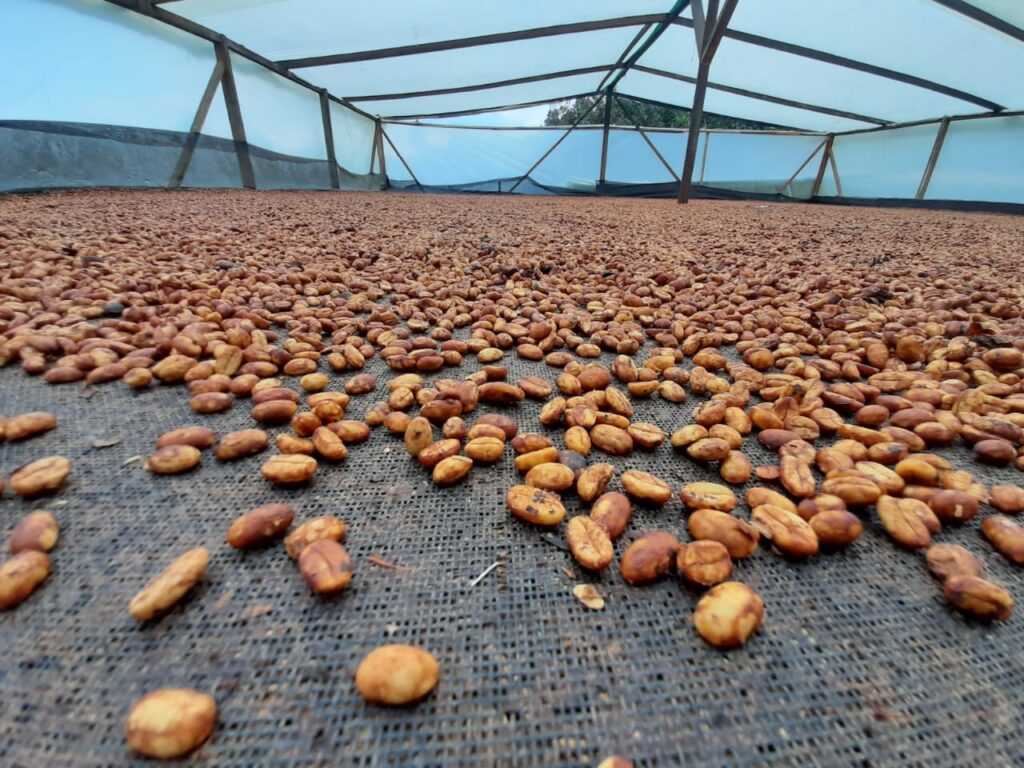MILAN — Let’s go once again to explore the origins of the bean, in contact with those who take care of it and make it grow before putting it on the market. A virtual visit to Garzòn Huila Colombia, on a land of 10 hectares, inhabited by 32 thousand coffee trees. Among these the varieties are Castillo Tambo, Castillo Rosario, Castillo zona Sur, Cenicafe 1 and Castillo Generale. At a height of 1,475 meters above the sea, surrounded by two hectares of virgin forest, is the plantation of Nina Abela’s family, El Diviso.
With her, we walked with our minds in the midst of these lands that have belonged to them since 1973. Who has created a brand exported abroad, Gadicafe.
Nina, how is the life of a farmer?
“It is quite an interesting life because it is very active. It starts very early, usually before the sun rises, in this way we make the most of daylight for our work. Agriculture is a profession that is done with passion. Most of us farmers can say that we are fulfilling our dream of doing what we like to do the most. For us it is not a job, although a lot of
effort goes into it, for us it is a lifestyle.
We learn to interact with nature. To read all the different ways that nature has to help us use it without having to damage it. We learn to read and understand the lunar phases that are so important to crops. We read the color in the plants, in the leaves, in the soil and this helps us understand what they need so that in this way they give us a very good harvest. Having an excellent harvest fills us with pride. That means our work is worth the effort.
It is not an easy life, it takes a lot of effort and dedication. You have to be aware of every aspect around the crops such as workers, facilities, water, sun, land, fertilizers, etc. There are so many things to do every day that sometimes the day is not enough to finish everything you wanted to do.”
What’s it like everyday?
Nina: “In my personal case, every day I get up very early (5:00 a.m.), I prepare a cup of the coffee that we proudly produce on our farm. While I enjoy the aroma of my freshly prepared coffee, I go to the outdoor room that allows me to see the beautiful view that nature gives me, enjoy the fresh air and hear the birds singing as the sun rises. After this, I put together an activity plan to develop throughout the day. I visit the crops to examine their growth and development, inspecting circumstances that may affect it such as the presence of pests, lack of fertilization, ready-to-pick fruit, and other aspects and protocols necessary for its proper development.
After direct observation, I take the corrective measures that to my knowledge are applicable. Next, I proceed to train and instruct the people who during the day will carry out the different activities such as coffee harvesting, cleaning the coffee plantations, and the protocol of the processes that must be applied to each activity. I also organize myself to coordinate that all activities both on the farm, as well as in our coffee export company, and other activities, are carried out in a coordinated way in order to bring an excellent quality product to the world, complying with the protocols of each process and above all taking pride in our work.”
What is the necessary know-how to do it in a professional way according to Nina?
“From the beginning we set ourselves two objectives: Support ourselves with the knowledge already acquired by practice in coordination with the technical aspects of official entities such as cenicafe that provides us through research with the technical tools to be applied and guarantee to express a maximum potential of production and quality in our cultivation. And as a second objective, carry out the appropriate post-harvest processes which allows us to obtain a high quality product and finally seek the marketing channels to be able to obtain fair prices at the time of sale.”
When and why have you decided to be a farmer?
“I was always in contact with nature. My grandparents had cattle farms and coffee farms, my parents had coffee farms, so I grew up seeing the love for nature in my family forever. We lived in the town but every weekend the plan was to visit our farm or our grandparents’ to disconnect from the routine and there´s nothing better than enjoy nature in all its splendor.
As it was very common in our country, when I finished high school, my siblings and I went to Bogotá, the capital of the country, to study at the university. After finishing our respective careers, we realized that we could implement our professional knowledge with all that we had already learned from our grandparents and parents. So one day after many conversations and after having lived abroad for a couple of years, we realized that something we all have in common is the love for coffee and the love for family. So we decided to start our own coffee business.

We are the third generation of the family on this same coffee farm. We wanted to continue with this legacy but improving each process and protocol by undertaking our own coffee company with my parents and siblings. We love each process in coffee, preparing the land, planting each plant, caring for it and harvesting it and then turning it into a brand of coffee with excellent taste, that makes us proud to be coffee growers. We are proud to be farmers.”
Which are the main difficulties for this work?

Nina: “One of the main difficulties is climate change because this work requires that we be exposed to the weather during field activities, pests and diseases that threaten to deteriorate crops, high costs of inputs, transportation routes to get our product to the stockpile from where it is shipped to the world.”
What about the coffee price? Is it enough rewarning? How can things change?
“Relatively at this time the internal price of coffee is not fair or sufficient to allow the coffee grower a comfortable and economically well-paid life, the above means that the profit is not enough concept and generalized situation in the coffee grower union that is the reason for that today the improvement of the production and the quality of the grain is being projected in order to obtain a market that is relatively economically significant for the coffee grower.
For this purpose, agricultural and specifically coffee-growing techniques are being implemented in all coffee spheres, enabling the farmer to produce that quantity and, above all, the projected quality; When this aspect becomes a reality, the economic situation of the coffee grower will be ostensibly improved for what I can say is the future of the coffee grower union.”
And what are the risks if nothing will change soon?
“If the current situation does not change in a short term, very surely both the production in quantity and quality of our coffee would be seriously affected by the inability of the small coffee grower to pay and sustain both the cultivation and the production of our Colombian coffee, it meansthat the coffee economy would collapse.”
How do you think to fight climate change and all the diseases that are going to threaten the future of cultivations?
“On the farm we have always taken into account the recommendations and technological
advances, we have gone hand in hand with science and technology because we have very
important tools to combat climate change, which are the implementation of varieties resistant to pests and diseases. We also have an advanced climate network which generates early warnings to prevent any type of climate change that may occur and thus be prevented be alert to the exact moments to be able to combat or control pests and diseases in time and avoid economic consequences.
The training issue for coffee growers in Colombia has been important, which we take into account to take care of the ecosystem. On the farm, it has been a priority to conserve the native species of some forests and the wetlands of the farm. In this way, we are conserving the ecosystem and species of birds and animals using living barriers in a natural way and thus maintaining a biological balance. We avoid the excessive use of chemicals and pesticides that can be harmful to the environment as well as to health, in this way and hand in hand with technologies we avoid negative consequences with climate change and we take care of the ecosystem that is also very beneficial for everyone.
We conserve native forests on the farm, in which we find native species and some water sources. We also make living fences with trees. We take care of the humid parts of the farm and also control the wastewater from the coffee processes and the conservation of the birds, growing fruits and different types of food sources that help them to continue living our lands in peace. There is nothing more beautiful than listening to the song of the birds at dawn.”
















